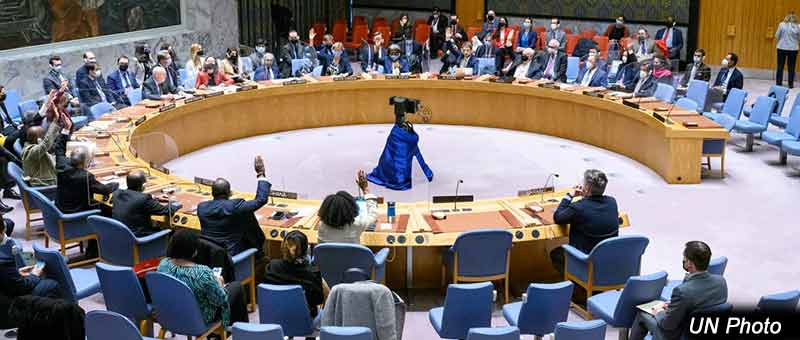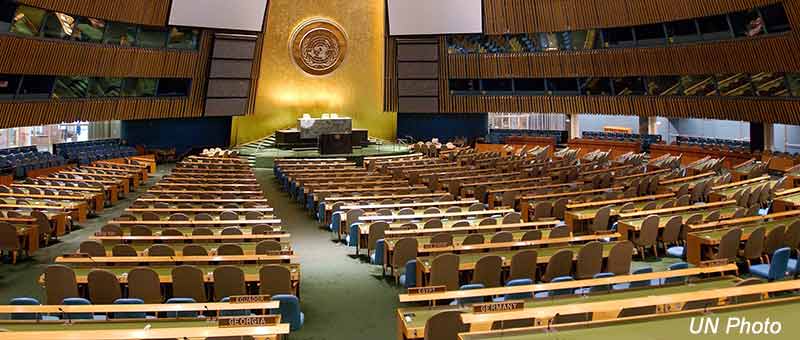- World
- Feb 28
Explainer / Emergency special session of the UNGA
• The UN Security Council met on February 27 to vote on a procedural resolution to refer the Ukrainian situation to an emergency special session of the 193-member UN General Assembly.
• India, China and the UAE abstained while Russia voted against the resolution and 11 Council members — Albania, Brazil, France, Gabon, Ghana, Ireland, Kenya, Mexico, Norway, United Kingdom and the United States — voted in favour.
• The vote calling for the UNGA session was procedural so none of the five permanent members of the Council — China, France, Russia, UK and the US — could exercise their vetoes.
• The resolution was adopted, paving the way for the General Assembly to meet on the worsening crisis.
• With the adoption of the resolution by the UN Security Council, it was for the first time in many years that the Council decided to call for an emergency special session in the UN General Assembly. This will be only the 11th such emergency session of the General Assembly since 1950.
Emergency special session
• Under the resolution 377A(V), widely known as ‘Uniting for Peace’, adopted by the General Assembly on November 3, 1950, an emergency special session can be convened within 24 hours.
• That text gives the Assembly the power to take up matters of international peace and security when the Security Council is unable to act because of the lack of unanimity among its five veto-wielding permanent members.
• Only 10 such emergency special sessions of the General Assembly have been convened since 1950.
• Following statements by countries in the emergency special session, the General Assembly is expected to vote on a resolution.
• While Assembly resolutions are non-binding, they are considered to carry political weight as they express the will of the wider UN membership.
Manorama Yearbook app is now available on Google Play Store and iOS App Store


